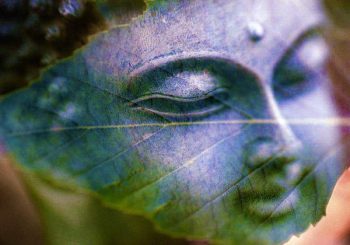Guest writer for Wake Up World
Here’s the thing: we need more Bodhisattvas, not Buddhas, in the world.
If you’re wanting a spiritual path or philosophy to commit to, I say choose the path of the Bodhisattva.
Why?
It’s easy to be a buddha sitting in a dissociated state of blissful elevation above the world. We have enough of those types of people already.
But the path of the Bodhisattva? It’s a path of heart-centered devotion and compassion. It’s a path of courageously embracing the shitstorms and existential voids of life. It’s a path of soul-embodied Love and Oneness.
While the Buddha is clean, detached, and purified non-dual awareness, the Bodhisattva is a tantric, fleshly, wild-divine being who knows what to do with the blood, pain, and filth of life.
So, my friend, I implore you to know that to embody your Soul’s purpose, you need to embrace the Bodhisattva path. The survival of our society, our very existence as a race, and our planet depend on it. I’ll explain why a little later.
But first, let’s define what I mean by Bodhisattva.
Table of contents
- What is a Bodhisattva?
- 7 Signs You’re a Bodhisattva In-the-Making
- Bodhisattvas, Soul Purpose, and the Planetary Crisis
- 5 Ways to Embody Your Soul’s Purpose as a Bodhisattva
- 1. Be self-compassionate, realizing that how you treat yourself spreads into the outer world
- 2. Acts of kindness create small external ripples but big internal changes
- 3. Craft your own Bodhisattva vow
- 4. Ask, “where are my actions misaligned with my heart’s desire?”
- 5. Cultivate loving-kindness toward humanity (note: it helps to have a role model)
What is a Bodhisattva?
In Buddhism, a Bodhisattva is a person who delays enlightenment in order to help all living beings achieve liberation (Nirvana). The word itself is composed of the Sanskrit words bodhi which means “enlightenment, awakening” and sattva which means “essence, being.” Put together, Bodhisattva can be translated as “one whose essence is enlightenment.”
And do you know what’s so beautiful about this term? What I love is how inclusive and universal it is. Everyone’s essence is enlightenment. We’re all unique expressions of the Divine. Therefore, we can all become Bodhisattva’s if we so choose.
“But do you need to be a Buddhist to be a Bodhisattva?” you might wonder. No. This is a term that refers to the fundamental essence within all of us that ultimately transcends all religions and labels.
“Do I have to be special or spiritually elevated to be a Bodhisattva?” might be the next question. Again, no. This is a path for everyday people living everyday lives – it’s not reserved for the “spiritual elite” (p.s. there’s no such thing!).
As Buddhist monk and spiritual teacher Thich Nhat Hanh says,
A bodhisattva is someone who has compassion within himself or herself and who is able to make another person smile or help someone suffer less. Every one of us is capable of this.
See? No Elite-Spiritual-Person badge needed!
7 Signs You’re a Bodhisattva In-the-Making
Not everyone is suited or attracted to Bodhisattvahood. This is a path for special souls who want to make a meaningful and long-lasting change not only in their own lives but in the lives of others too.
Can you relate to any of the following signs?
- You feel a strong calling to help, guide, and/or uplift others
- You often feel intense pain for the suffering of the planet (including plants, animals, ecosystems, and humanity at large)
- You’re a highly sensitive person and/or empath
- The path of Heartfulness is more appealing to you than the path of Mindfulness
- You have a strong affinity with the Wounded Healer archetype
- You’re a generous and devotional person by nature (your deepest fulfillment comes when you are of service)
- You’ve undergone some kind of spiritual awakening
Bodhisattvas are also focused on the eagle’s eye view (as opposed to the worm’s view) of life and the long-term consequences of their actions. They gravitate toward a we-centered life philosophy more than a me-centered approach to living.
“How will my actions ripple into the world and influence others?” is one of the central questions Bodhisattvas are preoccupied with.
If you understand that you’re not at the center of the universe, but are one part of the Web of Life, chances are that you’re already walking the Bodhisattva path!
Bodhisattvas, Soul Purpose, and the Planetary Crisis
By now it’s quite clear that, on a large scale, humanity is headed toward a pretty dark destination.
Global pandemics, climate change, pollution, deforestation, overpopulation, large-scale ecocide, and societal degradation all move us further toward the sixth mass extinction of life on this earth.
Perhaps what is worse is that most people either deny, are “too busy,” or are indifferent to the progressively worsening state of the planet. We’re like frogs sitting in a pot of water that is slowly boiling. At first we notice nothing, it’s ‘business as usual.’ But finally, when we do notice and decide to do something, it’s too late. The frog, unbeknownst to itself, has gradually boiled to death.
Just because something is seemingly imperceptible, doesn’t mean it’s not real or ultimately lethal.
So where does the Bodhisattva come into all of this?
Well, that’s the thing: the path of Bodhisattvahood, the path of sharing your Soul’s Purpose (i.e., your unique gifts) for the benefit of the planet at large is the only plausible path forward. It is our only hope. I repeat: it’s our ONLY hope.
True change can NEVER be an external thing. We’ve tried it. It has failed miserably. You can’t bully, coerce, protest, manipulate, rearrange, or vocalize your way to true long-lasting change. Change must come from the heart. Sure, you can make superficial external changes that last for a while. You can bribe, threaten, shame, or pressure people to make changes. But they won’t last long because they’re only surface, they don’t come from deep inside.
True change must be an internal thing – it must start individually for it to spread out and enact authentic transformation. If you throw a single rock into a pond, that rock will create ripple upon ripple that spreads far and wide. The same principle applies to us.
5 Ways to Embody Your Soul’s Purpose as a Bodhisattva
Walking the path of the Bodhisattva doesn’t mean trying to fit yourself into a narrow stereotype.
No, you don’t need to walk around carrying mala beads, put statues of Buddhist deities in your house, or chant in Sanskrit every day.
Bodhisattvas come in all shapes and sizes.
Some Bodhisattvas decide to raise ecologically-conscious children. Others decide to run businesses that help others. And still, others may choose a path of service to animals, plants, or the environment at large. There are Bodhisattva social workers, scientists, nurses, and government workers. The possibilities are endless.
Your Bodhisattva path may be spiritual, religious, or secular – it is essentially up to you and what resonates at a core gut level.
So with that being said, how do we embody our Soul’s purpose (whatever that may be) as a Bodhisattva? Put differently, how can we authentically live from the heart in a way that helps the planet?
Here are some ideas:
1. Be self-compassionate, realizing that how you treat yourself spreads into the outer world

Yes, you heard me: start first with yourself. Contemplate the question, What is my relationship with myself like? Do you have healthy self-worth and self-respect? Do you cherish yourself?
Sure, it’s normal to carry insecurities and mistreat yourself from time to time. But can you soothe this self-flagellation with the balm of compassion?
Practicing self-love is the core medicine in the Bodhisattva’s medicine bag. One gentle but powerful way of increasing this self-compassionate attitude is through the practice of Metta or loving-kindness meditation. You can also try mantra meditations that focus on the vibration of love (such as the Heart Sutra meditation: Gate, Gate, Paragate, Parasamgate, Bodhi Svaha!)
Read: How to Love Yourself »
2. Acts of kindness create small external ripples but big internal changes

Dedicate yourself to doing one small intentional act of kindness each day. The keyword here is intentional. By being conscious of this little devotion to life, you’re reaffirming your path and purpose each day.
Examples could include providing water or (appropriate) food to local wildlife, offering a listening ear to someone in need, smiling at a stranger, giving your child the extra affection they need, hugging your partner, helping someone online, and so on. The inner spiritual alchemy that can result from these small acts is profound.
Remember that Bodhisattvahood is not about being a martyr or doormat. Yes, it’s important to set boundaries. Don’t overextend yourself if it will cause you harm. The point isn’t to be the next Jesus or Buddha. The point is to open your heart and express your inner Being. This can create warmth, hope, joy, and solace for others.
3. Craft your own Bodhisattva vow

If being of service to the world and helping to ease the suffering of other living beings is important to you, formalize this intention with a vow.
The Dalai Lama, for instance, recites the following Bodhisattva vow inspired by the words of the 6th-century monk and sage Shantideva:
May I be a guard for those who need protection
A guide for those on the path
A boat, a raft, a bridge for those who wish to cross the flood
May I be a lamp in the darkness
A resting place for the weary
A healing medicine for all who are sick
A vase of plenty, a tree of miracles
And for the boundless multitudes of living beings
May I bring sustenance and awakening
Enduring like the earth and sky
Until all beings are freed from sorrow
And all are awakened.
Another common Bodhisattva vow used in various schools of Buddhism is the following:
Beings are numberless, I vow to save them
Desires are inexhaustible, I vow to end them
Dharma gates are boundless, I vow to enter them
Buddha’s way is unsurpassable, I vow to become it.
Of course, you don’t need to formally adopt the above vows – you’re more than welcome to craft one of your own that comes straight from the heart.
But see this practice as a way of reaffirming your Soul’s purpose in this world (whatever it may be). See it as a sacred offering to life and this planet. So that it penetrates deep into your psyche, put your Bodhisattva vow somewhere you can see it every day (like on your work desk or bathroom mirror).
4. Ask, “where are my actions misaligned with my heart’s desire?”

No one is perfect. We all do dodgy things from time to time. Sometimes we even fall into plain old toxic habits that last for years.
Being a Bodhisattva doesn’t exclude you from doing the hard inner work of examining your shadows. Everyone has a shadow self – or “dark side” – and it’s this hidden force that tends to sabotage our best efforts.
By identifying shadowy discrepancies and doing something about them, you won’t struggle with imposter syndrome (i.e., the disturbing inner feeling of being a “fraud”). You’ll feel more inner clarity, access deeper layers of love and inner peace, and feel more aligned with your Soul’s purpose.
Note: this introspective practice isn’t about shaming yourself. It’s not about trying to be perfect. Rather, it’s about being honest and transparent, qualities that we need to hone on the Bodhisattva path and indeed the entire spiritual journey.
One great place to start your shadow work is through the simple act of journaling.
See: Shadow Work Journal »
5. Cultivate loving-kindness toward humanity (note: it helps to have a role model)

At your very Core, you possess infinite Love and Compassion – qualities inherent in your True Nature. Yet, due to the strain of modern-day living, it can be hard sometimes to access this inbuilt fountain of loving-kindness.
Two powerful ways to open your heart and thereby embody your Soul’s purpose are to:
- Practice gratitude
- Find a heart-centered role model
Firstly, gratitude is a simple Bodhisattva practice that you can do each and every day. To help remind me of this practice, I have a stone near my bed that I pick up every night, reminding me to be thankful. This ‘gratitude stone’ enables me to take a few moments to say thank you to Life – and I’ve noticed that this single minute each day has helped to increase my open-heartedness greatly.
You can try the same approach and find a ‘gratitude’ stone or rock, and place it near your bedside. Alternatively, you may like to journal about the top ten things you’re grateful for each day. Being grateful is a practice rooted in science, so don’t go thinking it’s merely feel-good baloney!
Secondly, to stay motivated and inspired, find a heart-centered role model. Who inspires you? What person – mythological or not – fills you with a sense of love and respect? Some beings that come to mind include Maitreya, Tara, Quan Yin, Anandamayi Ma, Martin Luther King, the Dalai Lama, Mother Teresa, Jesus, Thich Nhat Hanh, and so on – there are many out there, both known and unknown!
Treat the person or being you gravitate toward as your Bodhisattva role model. And most of all, notice how their qualities are already there within you. If they weren’t, how else could you recognize and appreciate them? What a precious gift!
***
Once we see our individual Soul’s purpose as an intrinsic part of the health of the planet, what we do has deeper and GREATER meaning and importance.
This is not just wishful thinking. The reality is that the earth is in a dire and perilous place. Humanity is on a dark path of self-destruction. When we walk the path of the Bodhisattva, we create the ripples of change that this world so desperately needs.
What does being a Bodhisattva mean to you on your path? I’d love to hear below.
Recommended articles by Aletheia Luna:
- How to Create Your Own Full Moon Ritual (With 5 Suggestions)
- Anima and Animus: How to Harmonize Your Masculine and Feminine Energies
- The Sensitive Person’s Guide to Emotional Regulation (in 10 Minutes or Less)
- 25 Signs You Have a Wounded Inner Child
- Feeling Empty: 5 Ways to Heal Your Inner Void
- The Ultimate Guide to Heart Chakra Healing for Beginners
- The Dark Side of Spiritual Healing That No One Talks About
- The Origins of the Spirit Animal, Totem and Power Animal
- 9 Ways to Awaken the Divine Masculine Within You
- How to Channel Your Soul Through Automatic Writing
About the author:
Aletheia Luna is an influential spiritual writer whose work has changed the lives of thousands of people worldwide. After escaping the religious sect she was raised in, Luna experienced a profound existential crisis that led to her spiritual awakening. As a psychospiritual counselor, tarot reader, and professional writer, Luna’s mission is to help others become conscious of their entrapment and find joy, empowerment, and liberation in any circumstance. See more of her work at lonerwolf.com.
This article, Bodhisattva: 5 Ways to Embody Your Soul’s Purpose, was originally published on lonerwolf.com, reproduced with permission.

If you've ever found value in our articles, we'd greatly appreciate your support by purchasing Mindful Meditation Techniques for Kids - A Practical Guide for Adults to Empower Kids with the Gift of Inner Peace and Resilience for Life.
In the spirit of mindfulness, we encourage you to choose the paperback version. Delve into its pages away from screen glare and notifications, allowing yourself to fully immerse in the transformative practices within. The physical book enriches the learning process and serves as a tangible commitment to mindfulness, easily shared among family and friends.
Over the past few years, Wake Up World has faced significant online censorship, impacting our financial ability to stay online. Instead of soliciting donations, we're exploring win-win solutions with our readers to remain financially viable. Moving into book publishing, we hope to secure ongoing funds to continue our mission. With over 8,500 articles published in the past 13 years, we are committed to keeping our content free and accessible to everyone, without resorting to a paywall.








